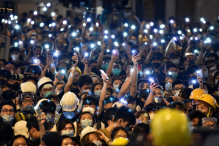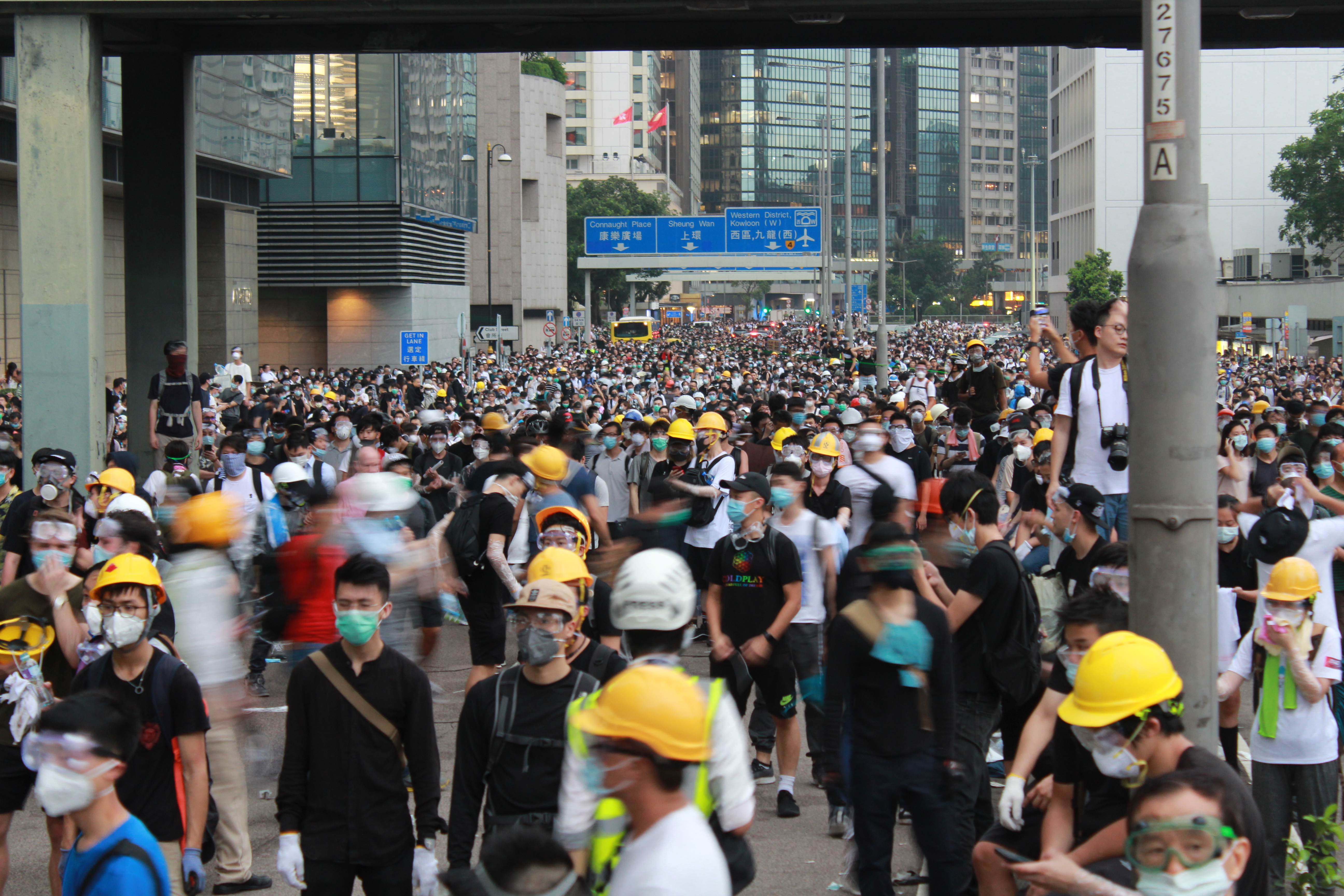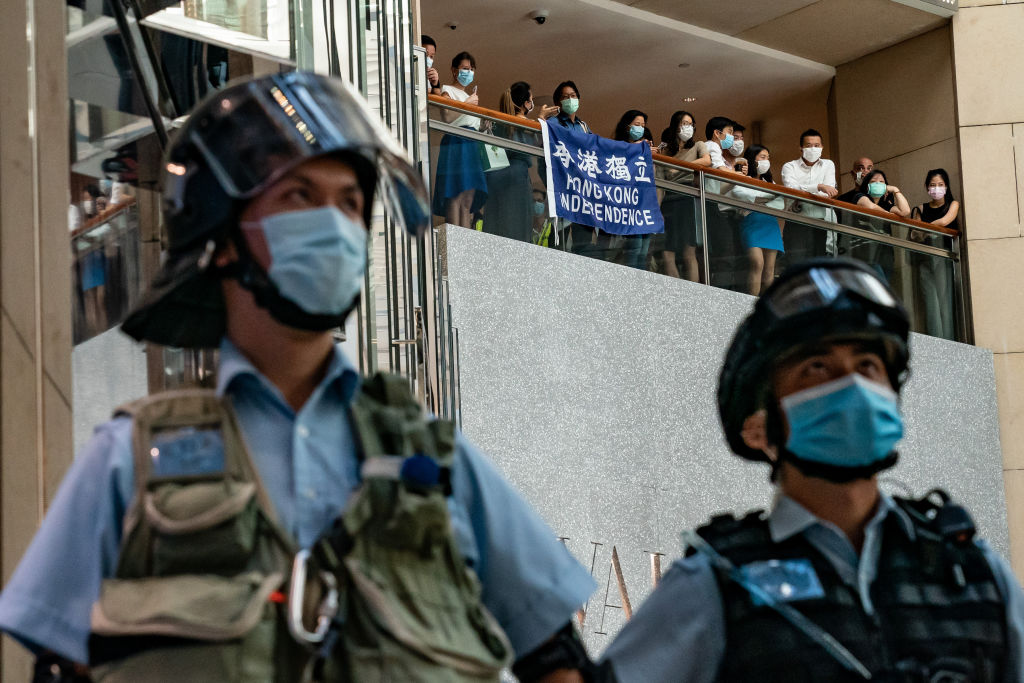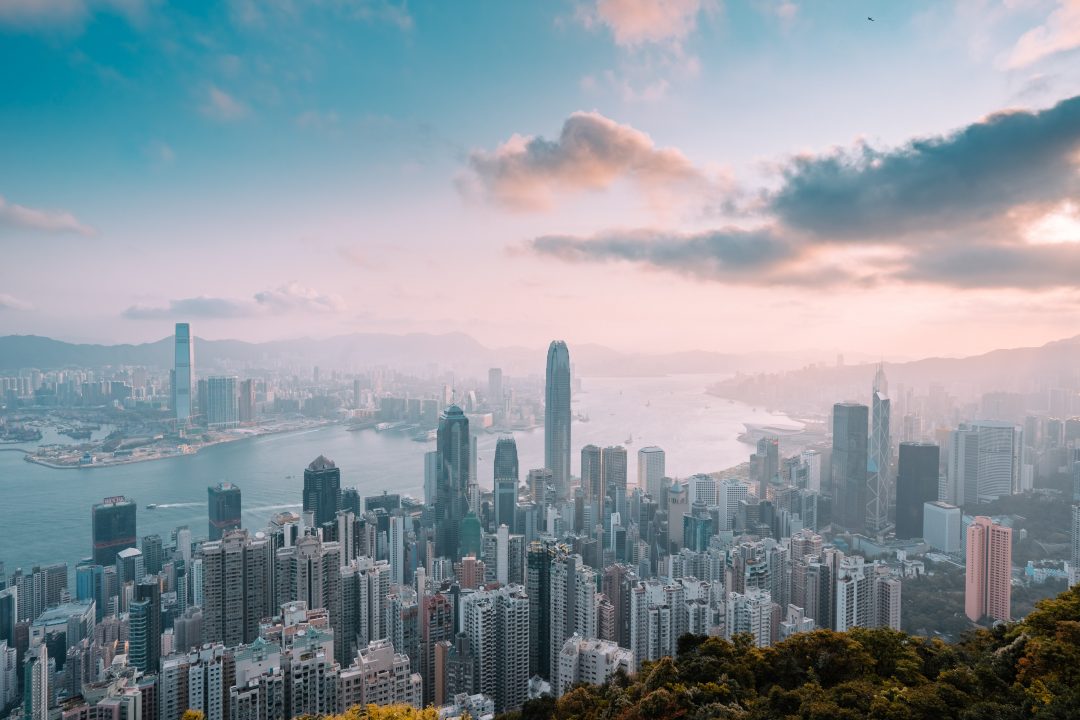THE WASHINGTON POST – The massive protests in Hong Kong caught officials there by surprise and startled the mainland. Even after Carrie Lam, Hong Kong’s Beijing-anointed chief executive, apologized and said she would shelve her widely reviled extradition bill, demonstrators promised to continue protesting until the bill is formally withdrawn and Lam resigns. It’s possible that Beijing’s leaders don’t really understand Hong Kong and that Hong Kong’s China-friendly leaders don’t understand their own people. But here are five myths about the territory that are common in the West.
MYTH NO. 1 Hong Kong is protesting to protect its democracy.
“Hong Kong’s Massive Protests May Be Chinese Democracy’s Last Stand,” blared one headline in Slate. A Taiwanese newspaper warned, “The erosion of democracy in Hong Kong offers a stark warning for Taiwan.” A bipartisan bill in Congress, the Hong Kong Human Rights and Democracy Act, “reaffirms the U.S. commitment to democracy, human rights, and the rule of law” in the territory.
But while its citizens enjoy a broad array of personal liberties and rights, Hong Kong has never been a democracy. It was for 150 years a British colony, run by an appointed British governor who reported to London. In the 1960s and ’70s, when Britain considered introducing direct elections, Communist China squashed the idea, warning Britain to “preserve the colonial status of Hong Kong.” Direct elections were later allowed, but only for a limited number of seats in the local legislature in 1991, with the countdown ticking to Hong Kong’s return to China. The last British governor, Chris Patten, expanded the number of directly elected council seats, but an infuriated China considered that a breach of the handover agreement and immediately replaced that legislature with an appointed one after resuming sovereignty.
Today, only half the 70 seats on the legislative council are directly elected by the public. The other half are chosen by “functional constituencies” — professional groups including engineers, teachers, lawyers, architects and accountants. Those seats are mostly filled with Beijing loyalists. The legislature is in any case relatively weak, with real power resting with the chief executive, who is appointed by a carefully chosen “selection committee” of 1,200 members heavily stacked with Beijing-friendly local figures. Candidates for chief executive are vetted in advance by Beijing to ensure their loyalty. China has repeatedly rejected demands from Hong Kong citizens for universal suffrage and the right to freely elect their top leader.
MYTH NO. 2 Hong Kong is a free-market bastion.
The Heritage Foundation’s Index of Economic Freedom has for the past 25 years crowned Hong Kong as the world’s freest economy. Forbes lists it as the third-best country for business, noting its “free market economy” and lauding the territory for lacking tariffs on imports and for imposing excise taxes on only four commodities. Hong Kong officials, such as Finance Minister Paul Chan Mo-po, tout those rankings . And it’s true that taxes are low, it is mostly a free port, and doing business is easy.
But Hong Kong’s economy can’t be called truly free while major sectors remain uncompetitive and controlled by local monopolies. A handful of wealthy tycoons and their families, most of whom made vast fortunes in real estate, moved into dominant roles in utilities and retail, often keeping out upstarts. The sprawling empire of Li Ka-shing, Hong Kong’s wealthiest man, includes chains of supermarkets, drugstores and appliance stores. Rival conglomerate Jardines owns the other big grocery and drugstore chains. Li’s son Richard Li controls Now TV, which has a virtual monopoly on paid television services, offering 197 channels. Hong Kong has no laws against price-setting or anti-competitive behavior.
Hong Kong also has a large government sector that keeps a heavier hand in the economy than outsiders may suspect. For example, the government tightly controls the supply of available land, which keeps property prices high — some say artificially so.
MYTH NO. 3 Hong Kong is economically vital to China.
At the time of the handover two decades ago, it was said that China would never kill the goose that lays the golden egg. More recently, “Why Hong Kong remains vital to China’s economy” was a headline on a 2014 explainer in the Economist. “Hong Kong remains a vital business link to China,” the Singapore Straits Timesnewspaper said in 2017 . And after the protests this month, the Nikkei Asian Review ran an opinion pieceunder the headline “China risks killing the Hong Kong golden goose.”
That analysis was true in 1997, when China took possession of a territory that accounted for about 16 percent of its gross domestic product. But China’s economy has exploded over the past two decades. Today, Hong Kong accounts for just 3 percent of China’s economy.
Shanghai, Shenzhen and Ningbo-Zhoushan now all have bigger ports than Hong Kong does. Chinese “red chip” companies are bypassing Hong Kong to list on the New York Stock Exchange. Foreign firms doing business in China base their employees on the mainland and no longer have to rely on Hong Kong for representative offices.
Economically speaking, Hong Kong is now more dependent on China. Visitors from the mainland prop up its tourism and retail sectors. Hong Kong universities depend on mainland students to keep their numbers up. Businesses hire Chinese graduates in Hong Kong for their Mandarin language skills and knowledge of the mainland.
MYTH NO. 4 Hongkongers dislike mainland Chinese.
A Google search reveals many stories about conflicts between Hongkongers and their mainland cousins. Mainlanders are accused of a range of bad behavior, from buying out store shelves to acting rudely to packing subways and buses, often with oversize suitcases (full of shopping to take home). Hongkongers feel inundatedby the sheer numbers crossing the border, fearing the erosion of their language, Cantonese, and what they call the “mainlandization” of Hong Kong.
But Hong Kong and the mainland are closely intertwined, not just economically but within families, too. Most Chinese residents of Hong Kong trace their roots to the mainland, and many still have family there and make regular trips. Plenty of people do business on the mainland and travel back and forth. There are many cross-border marriages. Shopkeepers complain when the number of mainland tourists visiting over long holiday periods dips. Young people watch mainland Chinese films, soap operas and television shows. Hongkongers are also becoming increasingly bilingual with Cantonese and Mandarin. Pro-democracy Hongkongers may dislike the Chinese communist system — but not necessarily mainland Chinese people.
MYTH NO. 5 Hongkongers wanted to stay British.
A common view since 1997 has been that this scrappy little free and open place was handed over unwillingly to an oppressive communist regime and that the British abandoned Hongkongers to their unwanted fate. “Anti-imperialists in the West failed to realize that to many Hong Kongers, being a British subject was preferable to being a subject of the Chinese Communist Party,” said an article this month in Foreign Policymagazine. A headline in Newsweek two years ago asked, “Did Britain abandon Hong Kong to the Chinese?”
Hongkongers had no choice about going back to China. But opinions on the handover were more favorable than not. Many locals were excited to see the end of British colonial rule and were enthusiastic about being reunited with China — particularly when told that Hong Kong’s separate system would remain unchanged for at least 50 years. In the month before the June 1997 handover, a University of Hong Kong poll showed that 35 percent of residents were positive about it and 48 percent were neutral, with just 9 percent feeling negatively.
The souring on China came afterward, and can be directly attributed to the belief that Beijing was reneging on its commitments and trying to curtail Hong Kong’s freedoms. In 2017, 20 years after the handover, a University of Hong Kong poll found that only 3.1 percent of young people between the ages of 18 and 29 said they were proud to identify as “broadly Chinese.” As recently as 2008, that figure was nearly 40 percent. China’s own actions have generated the current hostility.
Five myths is a weekly feature challenging everything you think you know. You can check out previous myths, read more from Outlook or follow our updates on Facebook and Twitter.
Originally published at:
https://www.washingtonpost.com/outlook/five-myths/five-myths-about-hong-kong/2019/06/21/d72eb0b2-935e-11e9-b58a-a6a9afaa0e3e_story.html?utm_term=.b4a2cf2056cb




